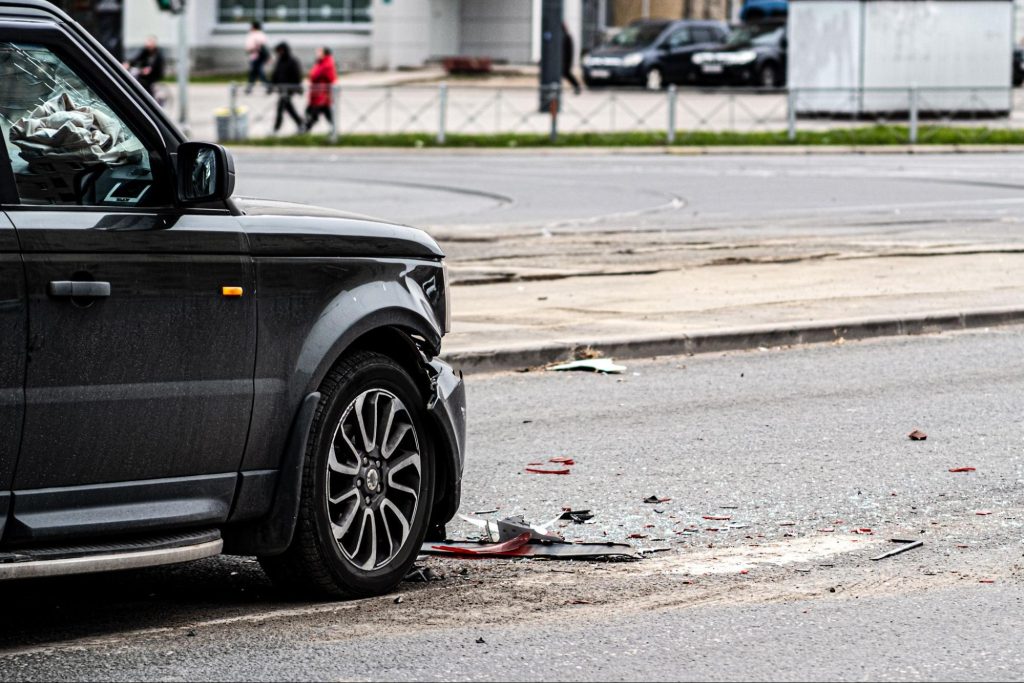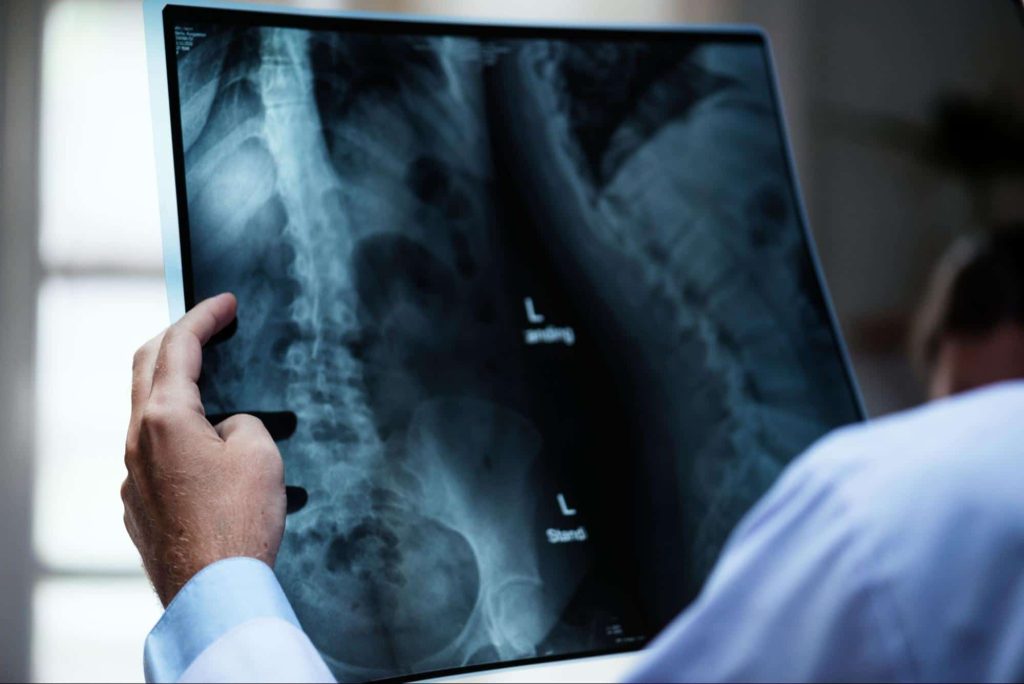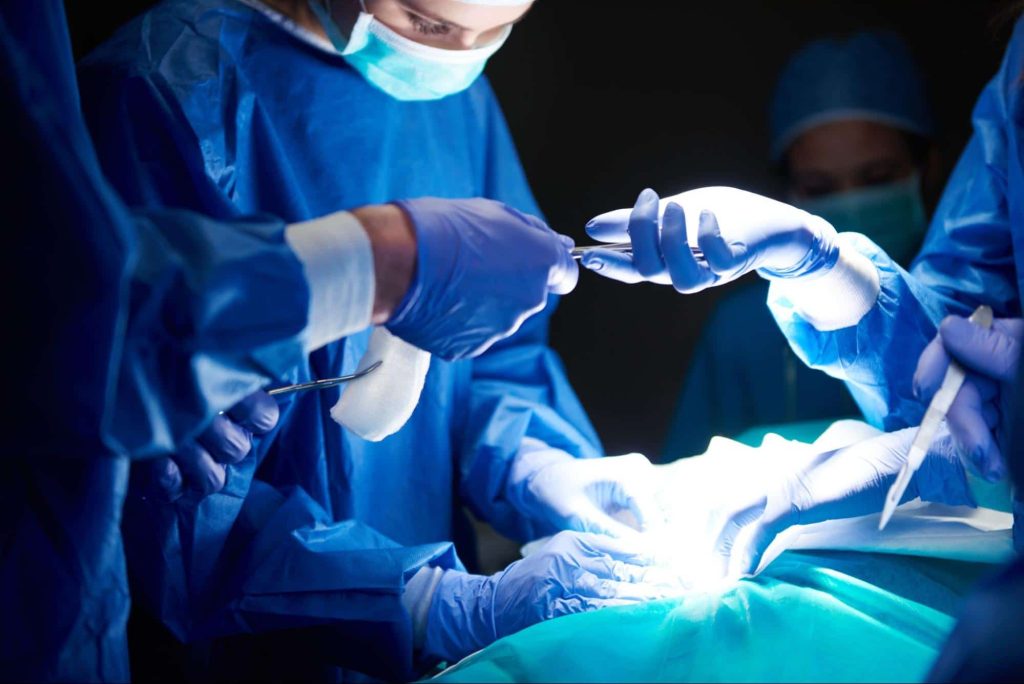Back Pain After a Car Accident: Common Injury Types, Causes, & What to Do

Being in a car accident is stressful enough as it is. Which makes dealing with insurance claims, filing lawsuits, car repairs/replacement, and everything else that comes after even more hectic.
You may not even be aware your back has been injured until well after the accident. If you’re experiencing delayed back pain after a car accident, here’s the information you need to understand more about your injury and what your options are.
Common Types of Back Injuries Caused by Car Accidents
If you’re feeling any sort of back pain after a car accident, you’re not alone. For many, this pain doesn’t last long; however, if it lingers, it could have lasting effects on your quality of life.
Even if the pain you’re experiencing doesn’t seem too bad, it’s important that you still seek out the help of a spine specialist. After all, back pain after an accident can sometimes indicate the presence of spinal cord damage that may even cause paralysis or other complicated medical issues.
While acute low-back injuries are generally caused by car accidents, there are actually several types of injuries you might experience in the immediate aftermath of your collision. These are the most common types of back injuries caused by auto accidents:
- Discogenic pain
- Spinal cord injuries
- Lumbar spine sprains and strains
- Spinal stenosis
- Spinal cord herniation
- Degenerative spinal disorders
- Facet joint injuries
- Whiplash
- Soft tissue injuries
Discogenic Pain
Discogenic pain is a type of back pain that’s caused by discs. These are the shock absorbers inside your spine, which act as containers for your spinal cord and nerve roots.
How Spinal Discs Work
There are 34 intervertebral discs in the spine (7 cervical, 12 thoracic, 5 lumbar) that provide stability and motion at each level of the spine. When you experience discogenic pain, it may feel like pressure or a quick ‘zinging’ when you move too much; however, there may also be some numbness and debilitating stiffness in unaffected areas.
If left untreated over time – or if treated improperly – discogenic pain can become a chronic issue that becomes debilitating.

Spinal Cord Injuries
Car accidents are the leading cause of spinal injuries. Injuries to the neck, upper back, and lower back include things like:
- Bruising
- Lacerations
- Pressure damage
Sometimes, damage to the spine from a car accident can lead to permanent nerve damage, permanent disability, and/or paralysis. Surgery is often required for these types of injuries as time goes on.
Lumbar Sprains & Strains
A lumbar sprain is an injury to the ligament on the back of your spine, a spinal disc.
A lumbar sprain occurs when one of your muscles tries to “jump” across a joint that might be misaligned or popped out of place when too much twisting occurs.
The soft tissues in your back can become swollen and inflamed as a result of this and make it difficult to move due to the pain.
Sprain vs Strain
A sprain is a stretch or tear in one of the ligaments that support your joints, like the ones in your elbow or ankle, but also in the spine.
A strain is what happens when you overstretch a muscle to where one of its tendons has been pulled from its attachment point on the bone (tendonitis).
In a general, you can think of it like this:
- Sprain → Ligament
- Strain → Muscle/Tendon
Spinal Stenosis
Spinal stenosis is a condition that causes the spaces inside where spinal nerves and vessels travel to narrow. This pushes on the root of the nerve cells that carry information to and from your brain.
Spinal stenosis can develop gradually over time as a result of osteoarthritis or old age, or it may happen suddenly after an accident, surgery, or trauma when there’s sudden damage to soft tissues in your back.
Symptoms of spinal stenosis vary from person to person, but they may include:
- Pain, numbness, and tingling in the limbs or extremities
- Loss of fine motor control
- Restlessness or inability to stay still
- Inability to keep the body bent in one position (e.g. when crouching, squatting, rolling over in bed)
Some people don’t experience any symptoms at all, however. Because of this, you should check with a medical doctor after a car accident even if you’re not experiencing any symptoms.
Disc Herniation
A disc herniation occurs when the cushions between your spinal vertebrae become ruptured or leak and can affect your spinal nerves causing pain in the arms and legs, weakness, and tingling (much like spinal stenosis).
To prevent long-term nerve damage, herniations caused by the trauma arising from a car accident can warrant medical attention.
Degenerative Spinal Disorders
Degenerative spinal disorders as a result of a car accident are more common when you’ve been injured and don’t receive medical attention right after. A small injury, without medical intervention, can easily turn into degenerative disc disease (a much worse problem) causing you to experience chronic pain.
Pain management for degenerative spinal disorders can include oral or injections as well as corrective surgery in serious cases. MRIs and CT scans are commonly ordered by medical professionals to diagnose these kinds of issues so they can treat them.
The costs associated with pain management, MRIs and CT scans add up quickly as well as the impact mobility issues can have on your ability to work and earn income. It is for these reasons that it’s so important to see a doctor after a car accident to address these things as early as possible.
A personal injury lawyer can help you recover compensation for these medical expenses and lost wages as well.
Facet Joint Injury
Facet joints are synovial joints that connect the back of each vertebra to the one below it. As you age, they can degrade due to normal wear and tear. Trauma from an accident can speed things up though.
Facet joint injury symptoms can vary based on the area of the back affected.
In the lumbar part of your back, these kinds of injuries can result in pain, reduced range of motion, posture changes, and more.
In the neck, these injures can result in pain, headaches, and mobility loss when trying to turn your head.
Treatment for these typically includes non-invasive methods such as pain management and physical therapy where the goal is to help rebuild the strength of the surrounding muscles and ligaments while the joints heal.
Whiplash & Neck Injuries
Whiplash is a type of neck injury. Neck injuries are common and serious injuries suffered in auto accidents. The car’s change in velocity can cause extreme back-and-forth forces that strain muscles and cause ligament injuries in your neck.
Symptoms of whiplash can include:
- Neck pain
- Loss of range of motion
- Headaches
- Stiffness
- Blurred vision
- Dizziness
Treatment for whiplash and other neck injuries may include pain medication, physical therapy, and exercise regimens. Chronic pain may still be an issue that you have to deal with despite going through treatment.
A personal injury attorney can help you recover compensation for medical costs, pain and suffering, lost wages, and more. Contact us to see what your options are.
Soft Tissue Injuries
Soft tissue injuries are also common in car accidents and can include back strains and sprains, contusions, concussions, and lacerations.
Soft tissue injuries can commonly impact your range of motion in the back, shoulders, and neck. Fortunately, if treated early, a soft tissue injury is often less serious than the others we’ve discussed.

How Back Pain is Treated After a Car Accident
Treatment for back injuries caused by a car accident will vary depending on the type of injury. The list below is not exhaustive but includes the most common forms of treatment.
- Spinal surgery
- Physical therapy
- Medication
It’s important that you see a doctor to get the right treatment for your individual situation.
Getting Financial Compensation for Your Back Injuries
Things can be stressful and hectic after being injured in a car accident dealing with insurance companies, costs associated with property damage, medical bills, and lost wages from work. If you have a back injury, working with a car accident injury lawyer to help you through this process will make things much easier.
Contacting our personal injury law firm is a smart first step to take if you want to ensure your rights are protected and you get what’s owed to you. We’ll guide you through the whole process and make it as easy as possible for you. We’ll negotiate with the insurance companies so you don’t have to—you just focus on healing and getting your life back on track.
